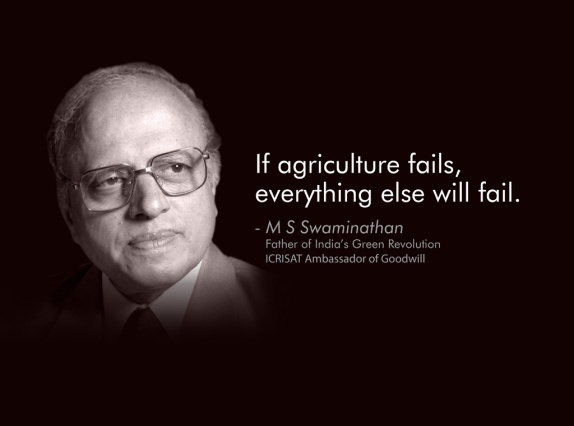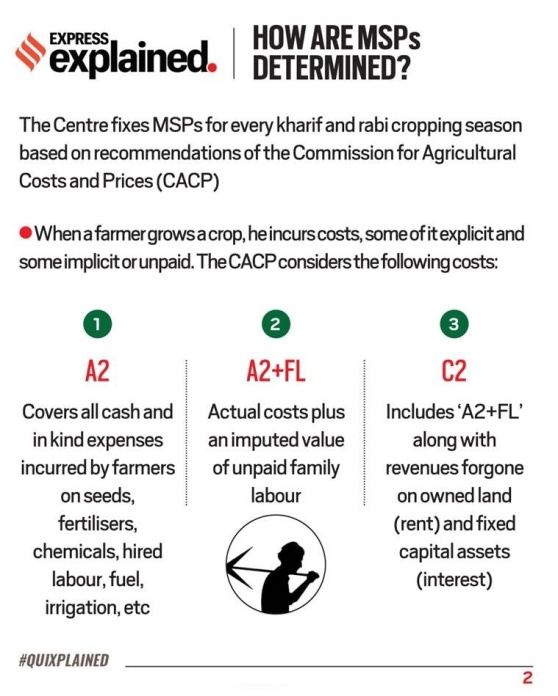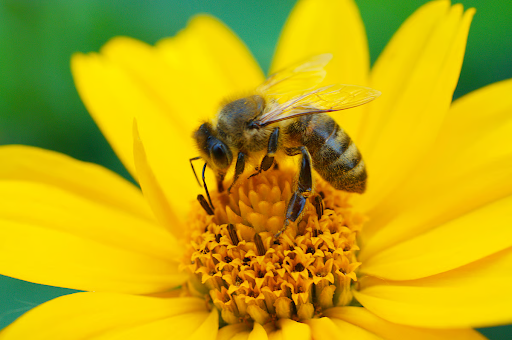Description

Disclaimer: Copyright infringement not intended.
Context
- Eminent farm scientist MS Swaminathan expressed happiness over the Centre announcing its decision to repeal the farm laws and said that the future of agriculture depends on the impact on production, procurement and prices.
MS Swaminathan Recommendations
- Substantial increase in public investment in agriculture related infrastructure particularly in irrigation, drainage, land development, water conservation, research development and road connectivity etc.
- The Swaminathan Report at many places notes that enforcement of MSP throughout the country is essential for imparting dynamism to agriculture.
- It recommends this safety net to safeguard the interests of the crops, people and regions which are likely to be affected in the process of globalization.
- C2+50 % is the core of the reports of the National Commission on Farmers.

- The Comprehensive cost (cost C2) includes imputed costs of family labour and rent of owned land, as also the imputed interest on owned capital.
- The National Commission on Farmers has recommended a 50 % margin over C2.
- The Swaminathan Commission had recognised the problem of cartelisation among traders in a particular Agricultural Produce & Livestock Market Committee (APMC) and thus recommended the establishment of One Nation-One Market.
- The report vouched for “development of domestic and international markets for local produce, and move towards a Single Indian Market.”
- It suggested simplification in the movement of goods by abolishing road tax and local taxes and introduced a National Permit for plying commercial vehicles anywhere in India.
- The report recommends to distribute ceiling-surplus and waste lands;
- Prevent diversion of prime agricultural land and forest to corporate sector for non-agricultural purposes.
- Ensure grazing rights and seasonal access to forests to tribals and pastoralists, and access to common property resources.
- Establish a National Land Use Advisory Service, which would have the capacity to link land use decisions with ecological meteorological and marketing factors on a location and season specific basis.
- Set up a mechanism to regulate the sale of agricultural land, based on quantum of land, nature of proposed use and category of buyer.
- A comprehensive set of reforms to enable farmers to have sustained and equitable access to water.
- Increase water supply through rainwater harvesting and recharge of the aquifer should become mandatory.
- "Million Wells Recharge" programme, specifically targeted at private wells should be launched.
- Substantial increase in investment in irrigation sector under the 11th Five Year Plan apportioned between large surface water systems; minor irrigation and new schemes for groundwater recharge.
- Expand the outreach of the formal credit system to reach the really poor and needy.
- Reduce rate of interest for crop loans to 4 per cent simple, with government support.
- Moratorium on debt recovery, including loans from non-institutional sources, and waiver of interest on loans in distress hotspots and during calamities, till capability is restored.
- Establish an Agriculture Risk Fund to provide relief to farmers in the aftermath of successive natural calamities.
- Issue Kisan Credit Cards to women farmers, with joint pattas as collateral.
- Develop an integrated credit-cum-crop-livestock-human health insurance package.
- Expand crop insurance cover to cover the entire country and all crops, with reduced premiums and create a Rural Insurance
- Development Fund to take up development work for spreading rural insurance.
- Promote sustainable livelihoods for the poor by improving (i) Financial services (ii) Infrastructure (iii) Investments in human development, agriculture and business development services (including productivity enhancement, local value addition, and alternate market linkages) and (iv) Institutional development services (forming and strengthening producers' organisations such as self-help groups and water user associations).
- Provide affordable health insurance and revitalize primary healthcare centers.
- The National Rural Health Mission should be extended to suicide hotspot locations on priority basis.
- Set up State level Farmers' Commission with representation of farmers for ensuring dynamic government response to farmers' problems.
- Restructure microfinance policies to serve as Livelihood Finance, i.e. credit coupled with support services in the areas of technology, management and markets.
- Recommend low risk and low cost technologies which can help to provide maximum income to farmers because they cannot cope with the shock of crop failure, particularly those associated with high cost technologies like Bt cotton.
- Need for focused Market Intervention Schemes (MIS) in the case of life-saving crops such as cumin in arid areas. Have
- Price Stabilisation Fund in place to protect the farmers from price fluctuations.
- Need swift action on import duties to protect farmers from international price.
- Set up Village Knowledge Centres (VKCs) or Gyan Chaupals in the farmers' distress hotspots.
- These can provide dynamic and demand driven information on all aspects of agricultural and non-farm livelihoods and also serve as guidance centres.
- Public awareness campaigns to make people identify early signs of suicidal behavior.
- The "net take home income" of farmers should be comparable to those of civil servants.
- Improving the functioning of the labour markets through such modification as may be necessary without eroding the core labour standards.
- Encouraging community-based breed conservation (i.e. conservation through use);
Conclusion
- These measures, as suggested by the commission, would help in enlarging small regional markets into a large national market, reduce transportation cost and improve the competitiveness of our agriculture.
https://economictimes.indiatimes.com/news/economy/agriculture/future-of-agriculture-depends-on-the-impact-on-production-procurement-and-prices-farm-scientist-m-s-swaminathan/articleshow/87805300.cms









